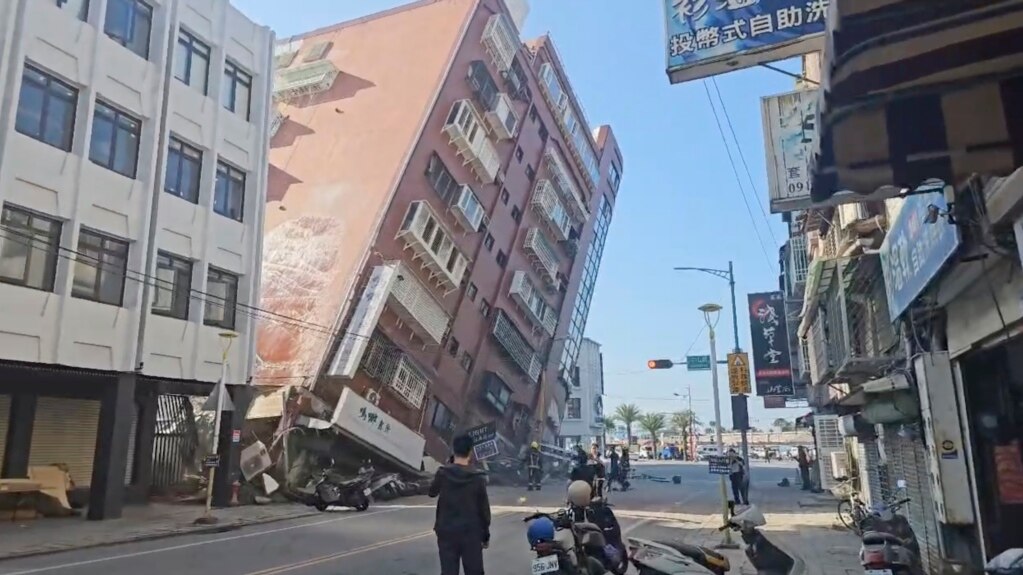On April 3, Taiwan was hit by its most powerful earthquake in 25 years.
The earthquake killed at least 12 people and injured more than 1,000. The earthquake damaged buildings and roadways and workers at quarries had no way home.
Taiwan sees powerful earthquakes from time to time. Experts say the damage to the East Asian island and its 23 million people has been contained thanks to its earthquake preparedness.
Here are details of Taiwan’s history of earthquakes:
Why so many earthquakes?
Taiwan lies along what is known as the “Pacific Ring of Fire.” It is the line of faults around the Pacific Ocean where most of the world’s earthquakes happen.
The Earth’s outer covering is divided into large pieces on which the oceans and landmasses sit. These pieces are called tectonic plates, and where they meet is called a fault line.
Earthquakes are common in the area near Taiwan because pressure builds up where the Philippine Sea Plate and the Eurasian Plate meet. The built-up pressure releases suddenly in the form of earthquakes.
The area’s mountains can increase ground movement, leading to landslides. Several landslides happened on Taiwan’s eastern coast near the center of the recent quake near eastern Hualien County. Falling rock hit roadways, crushed vehicles and caused several deaths.
Is Taiwan able to deal with earthquakes?
Taiwan’s earthquake agency measured the recent earthquake at 7.2 magnitude. The U.S. Geological Survey (or USGS) estimated it at 7.4.
The quake damaged several buildings in Hualien but caused minor losses in the capital, Taipei, although it was strongly felt there.
The earthquake hit in the morning when people were on their way to work. But, just minutes later, parents were again walking their children to school and workers were driving to offices.
Stephen Gao is an earthquake expert and professor at Missouri University of Science and Technology. He said, “Taiwan’s earthquake preparedness is among the most advanced in the world.” He said the country has strong building laws, a good earthquake network, and widespread public education campaigns and earthquake safety.
The government regularly increases the level of quake resistance required of new and existing buildings. This increases the costs of a building. But the government offers financial support to people willing to have their buildings examined for quake resistance.
There has also been punishment for failing to meet requirements. Following a 2016 quake in the southwestern city of Tainan, five people were found guilty of negligence and given prison sentences. The people were involved in building a tall apartment building. But it was the only major structure to collapse in that quake.
Taiwan also is pushing quake exercises at schools and workplaces. Media regularly carry warnings about earthquakes and safety that go out to cellphones.
Gao said those measures have helped Taiwan deal with earthquakes and prevent loss of life and damage.
The 1999 quake served as a warning
Taiwan and its surrounding waters have registered about 2,000 earthquakes that measured 4.0 or greater since 1980. And it measured more than 100 earthquakes above 5.5, the USGS found.
The island’s most serious quake in recent memory hit on September 21, 1999. The 7.7 magnitude quake caused 2,400 deaths, injured 100,000 and destroyed thousands of buildings.
Daniel Aldrich teaches political science and public policy at Northeastern University. He said it was a major wake-up call that led to important government changes to improve emergency services and disaster reduction.
As a result, the government passed the Disaster Prevention and Protection Act. Taiwan set up two national centers to deal with earthquakes.
Aldrich said, “I think we’re seeing the results in this most recent shock.”
I’m Gregory Stachel.

